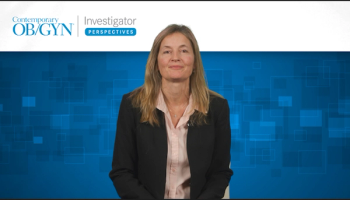
Rapid Relief: Quality-of-Life Improvements Observed in Recent VMS Trials
A panelist shares that secondary results from the trial showed early and sustained improvements in sleep and quality of life, underscoring the therapy’s potential to enhance endocrine treatment adherence by alleviating vasomotor symptoms (VMS) that often lead to poor adherence in patients with breast cancer.
Episodes in this series

In addition to the primary outcomes, the trial also evaluated key secondary end points, including the impact of treatment on sleep disturbances and menopausal-related quality of life. These measures offered a broader view of how the therapy affected day-to-day functioning beyond the frequency and severity of VMS alone. Findings from a separate presentation at the ASCO meeting highlighted that patients experienced notable improvements in sleep quality and overall quality of life as early as week 4, with continued benefit observed through week 12.
These improvements are especially significant considering the challenges that endocrine therapy presents for many patients. Persistent hot flashes, night sweats, and related symptoms often lead to poor sleep and daily fatigue, which can seriously undermine overall well-being. Alleviating these adverse effects may therefore enhance a patient’s ability to maintain their normal routine and emotional stability during cancer treatment. Importantly, the fact that these effects were evident so early in the treatment timeline adds to the practical appeal of the intervention.
The clinical relevance of these findings is underscored by the issue of adherence. Nonadherence with endocrine therapy remains a major barrier in breast cancer care, with study data indicating that approximately 25% to 30% of patients stop taking their medication—sometimes without informing their provider. In some reports, this rate rises to as high as 60%. Better control of adverse effects such as VMS and sleep disruption could meaningfully reduce these dropout rates. By improving tolerability, this therapy has the potential to support sustained adherence, which is critical for achieving the long-term benefits of endocrine treatment and reducing the risk of cancer recurrence.
Newsletter
Get the latest clinical updates, case studies, and expert commentary in obstetric and gynecologic care. Sign up now to stay informed.







